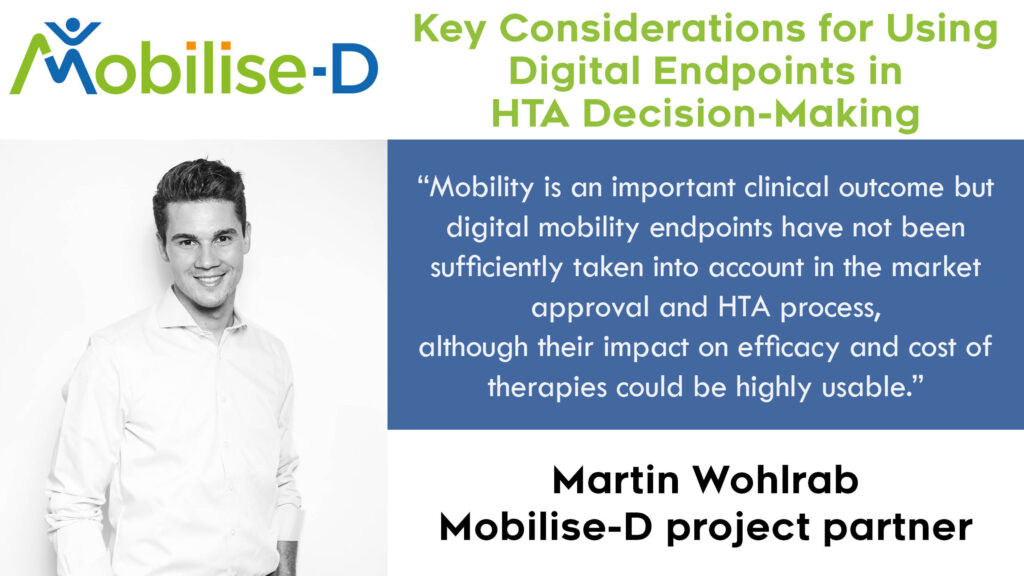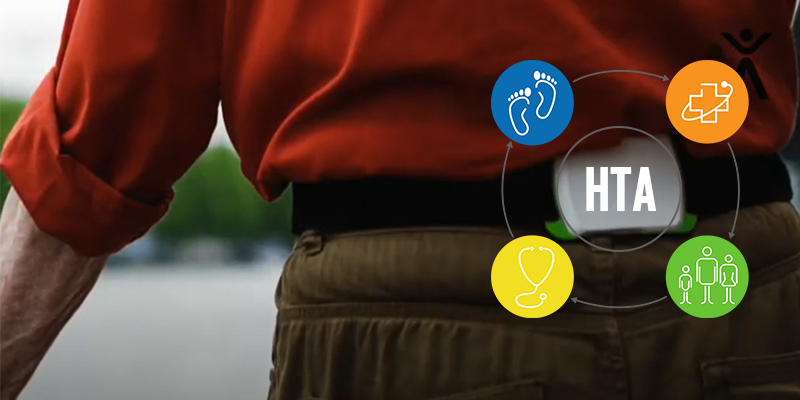Digital endpoints offer a great potential to be considered in the HTA framework. So far, however, there is no institutional way in.
On February 15, 2021, IMI Neuronet hosted an online meeting of its working group on health technology assessment (HTA) and regulatory interactions, moderated by Diana O’Rourke from the National Institute for Health and Care Excellence (NICE). The discussions were based around the experiences of three different IMI projects that are developing digital endpoints for use in clinical trials, including Mobilise-D. To support the discussions, three international HTA experts that represent different organisations – Anja Schiel (NoMA), Niklas Hedberg (TLV/EUnetHTA) and Sheela Upadhyaya (NICE) – were invited to provide their perspectives on several important issues.
Experience
The experts reflected on limited prior experience to date of evaluating digital endpoints as part of HTA assessments and recognised the potential role they could have in future evaluations of new treatments.
Expectations

The method of data collection should be driven by the decision context or purpose for which the data are required. For example, generating data in a clinical trial to demonstrate the efficacy of a drug, or collecting additional data in real-world settings in the post-launch phase. The focus of the discussions was on digital outcomes as a specific form of real-world data (RWD), with the experts highlighting the variable experience and guidance of different HTA bodies in using RWD for decision making.
Regardless of the method of data collection, the expectation from HTA bodies would be that any new outcomes show improved precision in comparison to traditional outcomes on which HTA bodies usually base their decisions. They should also be relevant to patients and conceptually valid for each indication in which they are applied.
Engagement
The experts were asked about suitable processes and timelines for engaging with HTA bodies on these types of issues. They stressed the importance of early engagement and dialogue, particularly through informal routes, such as multi-stakeholder conferences or learnings from other collaborative projects that are working on the development of new methods.
The ambition of the HTA working group of Mobilise-D is to highlight potential benefits of digital mobility endpoints for use in the HTA context. Another goal is to disseminate relevant results to the scientific outcome research community, experts, and HTA bodies.
Martin Wohlrab, on behalf of the Mobilise-D HTA team.
Remember to FOLLOW us on Facebook, Twitter and LinkedIn.
Subscribe to our Newsletter.






